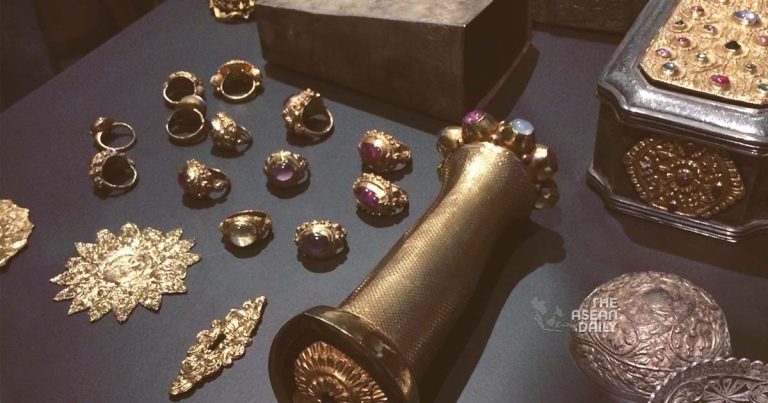7-7-2023 (THE HAGUE) Netherlands announced on Thursday its decision to return hundreds of colonial-era artifacts to Indonesia and Sri Lanka, including a valuable treasure trove and a bronze cannon adorned with precious gems.
This move comes following recommendations made by a government-appointed commission that investigated the illegal acquisition of Dutch colonial objects currently displayed in museums across the Netherlands.
Gunay Uslu, Dutch Deputy Minister for Culture, Education, and Science, described the recommendations as a significant milestone in addressing collections from a colonial context.
The establishment of the commission was prompted by a request from Indonesia for the return of art pieces and natural history collections taken during the period of Dutch colonial rule.
Among the items slated for repatriation are the renowned “Lombok treasure,” consisting of numerous golden and silver objects. The treasure was looted by the Dutch colonial army after seizing the Cakranegara palace on Lombok Island in 1894. Another prominent artifact is a bronze cannon adorned with silver, gold, and precious gems, including rubies.
Known as the “Lewke’s cannon,” this 18th-century piece is believed to have been a gift from a Sri Lankan nobleman named Lewke Disava to the King of Kandy around 1745-46. The cannon likely fell into Dutch hands in 1765 when Dutch troops, led by Governor Lubbert Jan van Eck, attacked and conquered Kandy.
After being exhibited in various locations throughout the Netherlands, the cannon eventually became part of the collection at the Rijksmuseum in Amsterdam.
Taco Dibbits, Director of the Rijksmuseum, hailed the restitution as a positive step in cooperation with Sri Lanka. He stated that the relationship and exchange of knowledge between the two nations in the realms of research and shared history establish a strong foundation for the future.
According to the public broadcaster NOS, the commission will issue decisions regarding other artifacts in due course. These include artwork from Nigeria, as well as the Dubois collection, which features the horse-riding reins of Prince Diponegoro, a Javanese royal who opposed Dutch colonial rule in the 19th century.
In recent years, the Netherlands has grappled with addressing the legacy of its colonial past. This was further exemplified when Dutch King Willem-Alexander issued a historic royal apology on Saturday, acknowledging the Netherlands’ involvement in colonial-era slavery.




